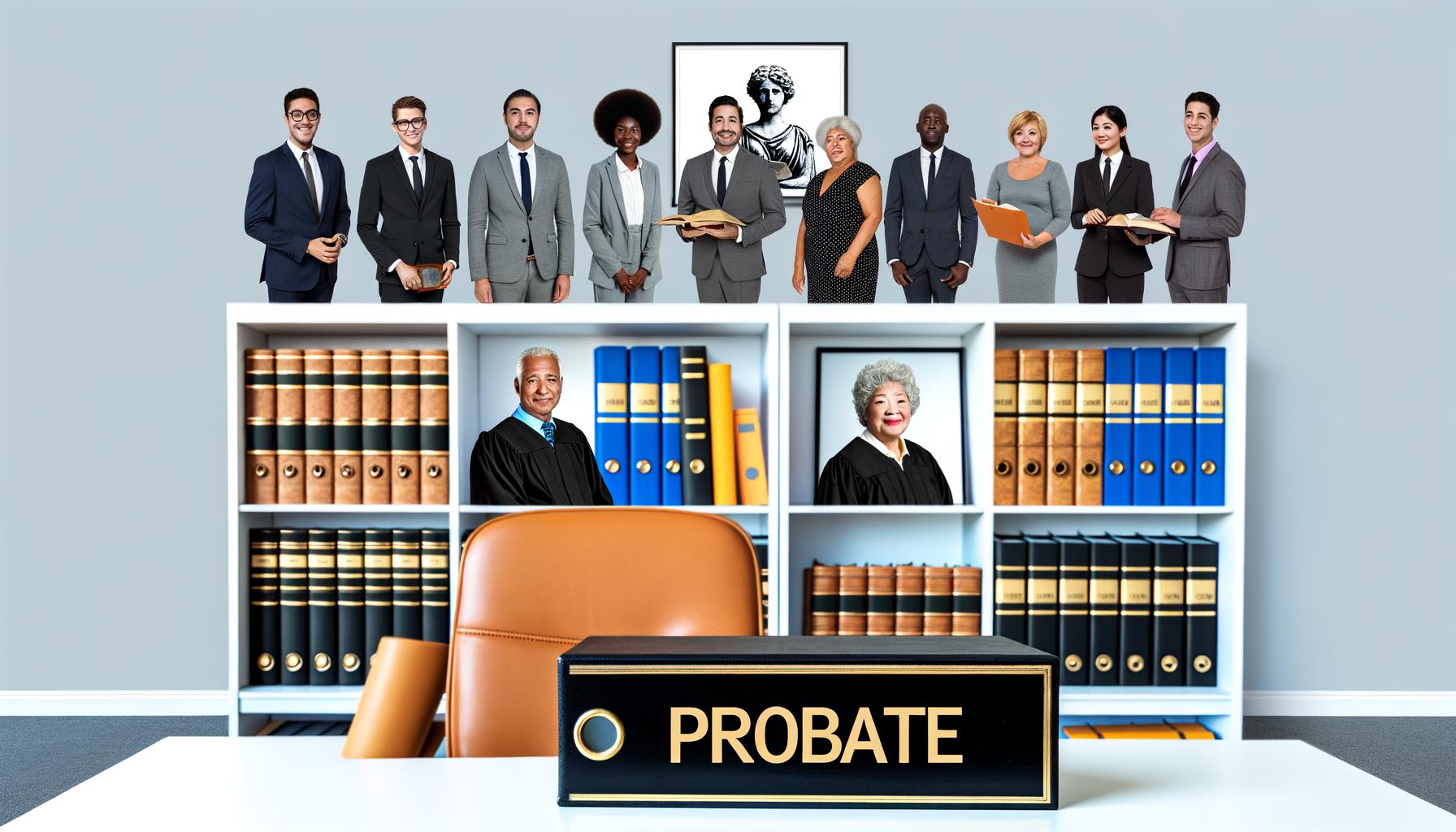In the realm of estate planning, understanding probate law is crucial for ensuring the smooth transition of assets and the proper execution of a deceased person’s wishes. Probate law encompasses the legal process wherein a court authenticates a will, appoints an executor, and oversees the distribution of the decedent’s estate.
It’s a procedure laden with intricate details that necessitate comprehensive knowledge to navigate effectively. For residents of Huntington Beach, being well-versed in probate law becomes particularly pertinent given specific local complexities that could impact one’s estate planning efforts.
Huntington Beach homeowners and residents often possess valuable real estate holdings, business interests, or other significant assets that require precise legal handling upon their passing. Failing to address these elements concretely within a well-defined probate process can lead to protracted legal battles among heirs, financial losses, and unfulfilled final wishes. Thus, understanding probate law does not just provide peace of mind but also safeguards one’s legacy against potential disputes and administrative challenges unique to this locale.
Moreover, Huntington Beach’s bustling community dynamics mean that multiple variables could influence how estates are managed posthumously. From cultural factors within families to specific local ordinances and state-wide California regulations affecting probate proceedings, having an informed perspective offers immeasurable benefits. By familiarizing oneself with the nuances of probate law in Huntington Beach, individuals can take proactive steps in their estate planning journey-ensuring that both they and their loved ones are prepared for any eventuality with utmost confidence.
The Probate Process Explained
Initiating probate in Huntington Beach begins with the filing of a petition in the local probate court. This step requires submitting documents such as the deceased’s death certificate, original will (if one exists), and a detailed inventory of the estate’s assets. This initial filing serves to officially open the probate case, allowing for judicial oversight. Moreover, interested parties must be notified about the proceedings to enable any objections or claims against the estate to be filed promptly.
The role of the executor is pivotal during the probate process. The executor, often named in the will, is tasked with significant responsibilities including identifying and collecting assets, paying off debts and taxes, and distributing remaining assets to beneficiaries as stipulated by the will or state law. Huntington Beach residents should note that being an executor involves meticulous record-keeping and adherence to court mandates, making it advisable to have a grasp of basic probate law principles.
Court involvement in Huntington Beach ensures that all actions taken during probate adhere strictly to legal standards. The local courts oversee various phases of this process-reviewing asset inventories, approving creditor payments, and validating distributions to heirs. Regular reports may need to be filed with the court detailing these actions. For estates involving substantial assets or complex disputes among heirs, court supervision provides an essential layer of checks and balances aimed at fair resolution.
| Probate Step | Description |
|---|---|
| Filing Petition | Submit necessary documents like death certificate and will to open probate case. |
| Role of Executor | Manage assets, pay debts/taxes, distribute remaining estate according to will/law. |
| Court Oversight | Local courts supervise steps such as inventory approval and distribution validation. |
Common Challenges and How to Overcome Them
Disputes among heirs are a frequent issue in probate proceedings, often arising due to misunderstandings or differing interpretations of the deceased’s wishes. These conflicts can lead to lengthy delays and increased emotional strain on all parties involved. Effective resolution typically involves mediation or legal counsel to guide conversations toward an amicable agreement.

It’s beneficial for executors to maintain transparent communication with all heirs from the outset, ensuring that everyone understands their share and rights under the will. By addressing potential conflicts early, many disputes can be mitigated before escalating into significant problems.
Another daunting challenge in the probate process is dealing with complex assets such as real estate holdings, business ownerships, or investment portfolios. These assets often require specialized knowledge and management skills to be handled appropriately. Executors might find themselves needing professional appraisals or even assistance from financial advisors to ensure accurate valuation and proper distribution.
In Huntington Beach, where property values can be significant, it’s essential for executors to work closely with real estate experts familiar with local markets. Properly managing these assets not only simplifies the process but also ensures fair treatment for all beneficiaries according to probate law.
Managing debts and liabilities is another critical aspect that executors must navigate carefully. The decedent’s outstanding debts must be identified and settled before any remaining estate can be distributed among heirs. This usually involves notifying creditors as soon as probate begins, verifying claims against the estate, and using estate funds judiciously to pay off valid debts.
Executors should keep meticulous records of all debt-related transactions as this documentation will likely need submission during court proceedings in Huntington Beach. Ensuring all liabilities are satisfied according to California’s probate laws protects the executor from legal repercussions while fulfilling their fiduciary duty effectively.
| Challenge | Solution |
|---|---|
| Disputes Among Heirs | Mediation and transparent communication |
| Complex Assets | Professional appraisals and working with experts |
| Debts and Liabilities | Identifying debts early and maintaining accurate records |
Legal Requirements and Timelines
Understanding the legal requirements and timelines in probate law is vital for ensuring a smooth and efficient process. In Huntington Beach, like elsewhere in California, there are specific deadlines that must be adhered to when filing documents and closing probate cases. Missing these deadlines can result in significant delays and potential penalties. Key deadlines include:
– Filing the Petition for Probate: This initial step typically needs to be completed within a certain time after the death of the individual.
– Notifying Creditors: Creditors must be notified promptly so they can file any claims against the estate within a specified period.
– Final Accounting: The executor is required to provide a full accounting of the estate’s assets, debts, and distributions before finalizing the probate.
Mandatory documentation is another crucial aspect of navigating probate law efficiently. Various records must be submitted to the Huntington Beach probate court, including:
1. Death Certificate: An official copy is necessary to legally acknowledge the decedent’s passing.
2. Will (if available): The original will should be filed with the court to guide estate distribution as per the deceased’s wishes.
3. Inventory and Appraisal Report: A thorough listing of all assets belonging to the estate with their appraised values.
California-specific regulations also play an essential role in shaping how probate proceedings are conducted in Huntington Beach. For instance, California follows community property laws, which significantly impact how assets acquired during marriage are divided upon someone’s death. Additionally, if no will exists, state intestate succession laws dictate how assets are distributed among surviving family members.

Awareness of these specific regulatory requirements will help you better prepare for and manage any California-specific nuances within your probate case.
Hiring a Probate Attorney
When selecting a probate attorney, be mindful of key factors to ensure you have an advocate equipped to handle your particular needs. Start by evaluating potential attorneys’ qualifications and experience. Look for those with a proven track record in probate law and familiarity with Huntington Beach courts. Consider client testimonials and seek recommendations if possible. Additionally, assessing an attorney’s communication skills is crucial; clear and consistent communication will keep all parties informed throughout the process.
Cost considerations are another essential aspect when hiring a probate attorney. Legal fees can vary widely, dependent on factors such as complexity of the estate and the level of service required. Typical cost structures include hourly rates or flat fees for specific services within the probate process. Some attorneys might also work on a contingency basis, though this is less common in probate cases. It’s wise to request an upfront estimate to prevent unexpected financial strains later on.
Tips for a Smooth Probate Experience
Organizing Financial Records
One of the crucial steps in ensuring a smooth probate process is keeping all financial records organized. This involves gathering and securely storing documents such as bank statements, tax returns, wills, and any other relevant financial paperwork.
Having these records in order not only makes it easier for the executor to manage the estate but also helps avoid delays caused by missing or incomplete information. It’s advisable to create a comprehensive checklist of all assets and liabilities to ensure that nothing is overlooked during probate proceedings.
Effective Communication
Effective communication among all parties involved can greatly reduce misunderstandings and conflicts during the probate process. The executor should maintain transparent and regular communication with heirs, beneficiaries, and other stakeholders to keep everyone informed about the progress and any critical developments.
Scheduling frequent updates or meetings can help address concerns early on, thus averting potential disputes. As probate law can be complex and emotionally taxing, promoting an atmosphere of open dialogue can go a long way toward maintaining harmony throughout the process.
Preemptive Estate Planning
One of the smartest strategies for simplifying future probate is engaging in thorough estate planning well before it’s needed. Drafting up-to-date wills, trusts, and other legal structures can significantly streamline the distribution of assets upon one’s passing.
In Huntington Beach, understanding local estate planning options in line with California’s probate law is essential for minimizing complications later on. By consulting with experienced estate planners or attorneys now, you can set your heirs up for a more straightforward probate experience while also ensuring that your wishes are carried out effectively.
Implementing these tips will go a long way in alleviating stress and complications during what is often an emotionally challenging time. Remember, proactive measures taken today can yield smoother processes down the road when navigating Huntington Beach’s landscape of probate law.
Wrap-Up
Navigating the complexities of probate law in Huntington Beach doesn’t have to be an overwhelming experience. By understanding the fundamentals of probate, recognizing the importance of local regulations, and taking proactive steps, you can effectively manage the probate process. From initiating probate proceedings and fulfilling executor duties to mitigating disputes among heirs and managing complex assets, being well-informed will significantly ease the journey through this legal landscape.

We’ve explored several pivotal aspects of the probate process that are crucial for anyone involved. Knowing key deadlines and documentation requirements ensures compliance with Huntington Beach’s specific regulations. Additionally, hiring a qualified probate attorney can simplify intricate details-providing expert guidance and increasing efficiency in resolving estate matters. Hence, the value brought by professional legal assistance cannot be overstated-it’s often a worthwhile investment to safeguard your interests and those of your loved ones.
In conclusion, thorough preparation and effective communication are vital components for a smooth probate experience. By organizing financial records meticulously and engaging in preemptive estate planning, you’ll pave the way for a more streamlined process for your heirs.
Equip yourself with local resources, stay informed about state-specific laws like those in California, and take advantage of professional help when needed-all essential tools to navigate probate law in Huntington Beach confidently. With these strategies at hand, you can approach this legal endeavor not just with competence but with absolute confidence as well.
Frequently Asked Questions
What Is the Probate Process in California?
The probate process in California involves the administration of a deceased person’s estate under the supervision of a court. It begins with a petition filed with the court to establish the validity of the will or, in cases where no will exists, to appoint an administrator for the estate.
The court then oversees the appraisal and inventory of the deceased’s assets, payment of debts and taxes, and finally distribution of the remaining assets to beneficiaries as specified by the will or by state law if there is no will. This process ensures that all legal and financial matters are settled appropriately before distributing assets.
Why Do I Need Probate?
Probate is needed because it provides a legal framework for settling a deceased person’s financial affairs, ensuring that all outstanding debts and taxes are paid before any remaining assets are distributed to heirs or beneficiaries. Without probate, asset distribution could be chaotic, potentially leading to disputes among family members or creditors who might be left unpaid.
Probate also offers protection against potential fraud by validating wills and overseeing their execution within an official judicial process.
What Is the Probate Law in the United States?
The probate law in the United States encompasses a set of regulations and procedures that govern how a deceased person’s estate is managed and distributed after death. Each state has its specific statutes, but they generally follow principles ensuring that estates are settled in an orderly manner, debts are paid off, and remaining assets are allocated according to either the will’s instructions or state intestacy laws if there is no valid will.
Federal tax regulations can also impact probate processes regarding estate taxes at higher asset levels.
How Do I Avoid Probate in California?
In California, avoiding probate can be achieved through various estate planning methods such as creating a living trust, designating beneficiaries for retirement accounts and life insurance policies, holding property jointly with rights of survivorship, or utilizing payable-on-death (POD) accounts for bank accounts.
These methods enable direct transfer of assets upon death without needing court intervention while still providing control over your estate during your lifetime.
Do All Wills in California Have to Go Through Probate?
Not all wills in California must go through probate; it typically depends on the value and complexity of the estate. For small estates valued below a certain threshold (currently $166,250), simplified procedures allow transfer without formal probate.
Additionally, certain types of property like joint tenancy holdings or those designated to payable-on-death beneficiaries may bypass traditional probate entirely due to their automatic transfer mechanisms stipulated by ownership forms or contractual terms.

